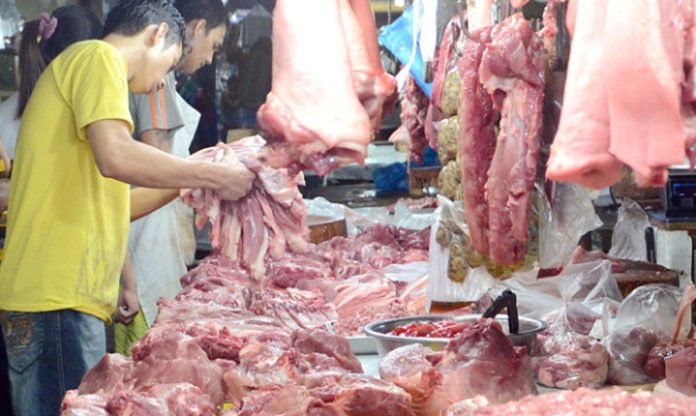
THE country’s frozen pork inventory has more than doubled to a record level of over 72,000 metric tons (MT), driven by the influx of imported pork coupled with market bottlenecks that hindered traders from selling their meat products.
Latest National Meat Inspection Service (NMIS) data showed that as of August 2 the inventory reached 72,306.98 MT, which was 33,777.22 MT higher than the 38,529.76 MT recorded in the same period of last year.
NMIS data showed that 97 percent of the total frozen pork inventory were imported or about 70,400.31 MT, while the remaining volume of 1,906.67 MT were locally produced pork.
Historical NMIS data showed this is now the highest volume of frozen pork held by the country’s cold storages nationwide. The record-high level was also confirmed by industry stakeholders during a House Committee hearing on Tuesday.
Aside from the expected influx of imported pork this year due to domestic supply shortfall, industry players told the BusinessMirror that weak consumer demand due to lower purchasing power as well as shipment delays contributed to the record level inventory.
‘Uncharted territory’
“We are in uncharted territory. We do not know the extent of the damage to the consuming sector,” Meat Importers and Traders Association President Jesus C. Cham told the BusinessMirror in describing the current weak consumer demand for pork.
“More or less, importers and traders are going and working with their gut feeling. They are hoping that what worked before will work today [in terms of supply and demand],” Cham added.
Cham noted that the recent implementation of enhanced community quarantine over key pork-consuming areas of the country did not help to improve consumer sentiment.
“The consumers who have money cannot go out to buy and the ones that do not have the money, cannot really afford pork,” he said.
Cham added that irregular shipping schedules have also contributed to the spike in frozen inventory since some shipments arrived way beyond their intended schedules. He also noted that some importers and traders could have been holding on to their current supply and spreading them out to cater the needs of all their clients.
“We have to satisfy most of our sukis. Some want to buy in bulk or pakyawan but we cannot give them everything. We have to ensure that all of our clients are being catered or else they might leave us and find another supplier,” he explained.
Jet B. Ambalada, COO of Royal Cargo Inc., told the BusinessMirror that the current volume of imported pork in cold storages might be the country’s “new normal” as long as the domestic supply shortfall persists.
Ambalada explained that the 70,400 MT of imported pork in nationwide cold storages could already serve as a two-month buffer supply based on an annual pork shortfall of 500,000 MT. This, he pointed out, would allow the country to have sufficient stocks while the domestic production is still recovering and considering the four-month delays in the arrival of pork imports today.
“We need to keep a healthy level of inventory. This is the new normal inventory level for us,” Ambalada said.
Both Ambalada and Cham agreed that one way to immediately unload the imported pork in cold storages is if the government ramps up its marketing efforts through direct selling of these frozen products via partner supermarkets or weekend pop-up stores at prices cheaper than prevailing quotes.
The BusinessMirror earlier reported that the government has implemented various marketing efforts that will allow consumers access to cheaper imported frozen pork in its bid to reduce prevailing pork prices, which remain above P300 per kilogram. (Related story: https://businessmirror.com.ph/2021/08/02/private-sector-sells-imported-pork-via-govt-program/)

